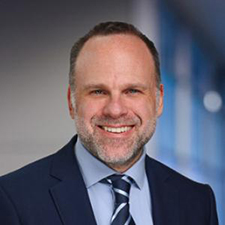
EDI and Training

Vice-Chair, Education
The Education Team believes that equity, diversity, and inclusion (EDI) are central to its instructional mission. Our commitment lives in our student recruitment and admissions efforts, contributions to departmental culture, and outreach and community-building initiatives.
To recruit the most diverse group of students, we actively engage with candidates at Historically Black Colleges and Universities and at the annual McNair Research Fair for first-generation college students. In support of these efforts, the department dedicates 25% of tuition revenues to scholarships for those with a variety of demonstrated needs, and our admissions process is defined by a EDI focus, including a holistic application evaluation and optional GRE score submission. We have also created an equity-minded candidate assessment for application review, which includes at least one representative from the department's EDI Committee.
We have an inclusive departmental culture—our research is often centered on underrepresented groups, and EDI foundational trainings are required of first-year students. We have also woven EDI throughout our BRIDGE (Building Research Inclusion and Diversity in Graduate Education) program that mentors and supports a diverse and talented workforce equipped to improve population health. And to foster community building, we connect our international students with groups across campus that provide support services and in-house resources developed specifically for their needs.
In summary, the Education Team helps strengthen the department’s educational efforts by building and supporting instructional programs that value our diverse life histories and experiences and that recognize and amplify the unique contributions of all individuals.
EDI and Research

Vice Chair, Research
Our commitment to equity, diversity, and inclusion (EDI) strengthens our department’s research in several ways. First, fostering an inclusive environment enriches our perspectives and methodologies. Second, pursuing health equity and understanding systemic forces helps reduce health disparities. Third, EDI enhances our interactions with research participants, collaboration within teams, and resource allocation.
We integrate EDI by targeting diverse populations, ensuring the cultural appropriateness of study materials, and training staff in respectful engagement. Our teams investigate health disparities at various levels, use innovative approaches to capture diverse voices and develop methods to elicit health experiences from underserved populations. We also collaborate with local communities to address their health needs. Examples of research areas embedded with EDI include:
Climate Change and EDI
Climate change disproportionately affects marginalized communities, exacerbating health disparities. We study climate-related health impacts to develop interventions that mitigate adverse effects on vulnerable populations. Our research includes examining how extreme weather events and pollution impact health outcomes in diverse populations.
Artificial Intelligence and EDI
We leverage AI to analyze health disparities, predict outcomes, and tailor interventions for diverse groups. AI tools improve health information accessibility, especially for those with lower literacy and limited healthcare access. By using AI, we can identify patterns and develop targeted strategies to address the unique needs of different demographic groups.
Bellwether Collaborative
The Bellwether Collaborative for Health Justice, part of our department, focuses on how mass incarceration drives inequality and impacts health. This initiative highlights our commitment to addressing social determinants of health and promoting equity through research. The Collaborative examines the intersection of incarceration and health inequality, exploring strategies to improve health outcomes for systems-impacted individuals. Current projects include the COVID Prison Project, which tracks and analyzes COVID-19 data in prison systems, and the Third City Project, which aggregates health and policy data from carceral systems.
EDI and Workforce

Chief Administrative Officer
Population Health Sciences
I am proud to say that equity, diversity, and inclusion (EDI) is not just a buzzword in our department—it is critically important to our success and integrated into almost everything we do. EDI informs our recruiting and hiring processes, helps us create and sustain a healthy work climate, and affects how we think about problems, solutions, and opportunities.
Staff, faculty, and trainees make up our 16-member EDI committee that is so active there is a waiting list to join. Nine EDI members, who happen to all be DPHS staff, created a sophisticated hiring toolkit comprised of equitable practices and processes which are being used across the department when filling job openings. This toolkit is also being piloted for deployment across the entire Duke University School of Medicine—an example of not only how EDI is integrated into our department, but also how we are leading the way in developing best practices that will shape the future of the university.
Our work to achieve EDI is never done. Thus, I would appreciate hearing from you on how we can further strengthen our practices in the Department of Population Health Sciences!